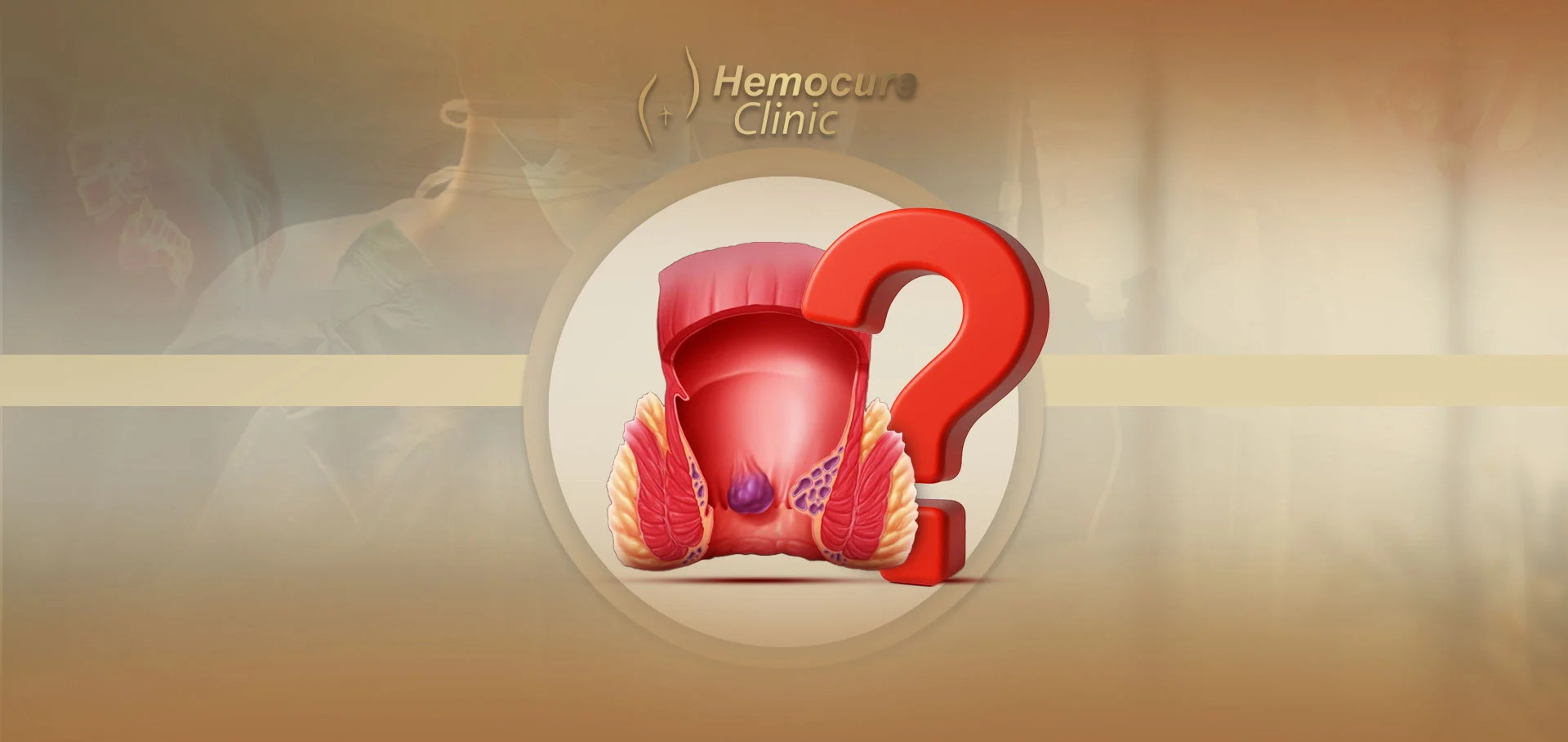What are hemorrhoids? Causes, symptoms, and modern treatment methods

Introduction
Hemorrhoids are a common health problem affecting the anal and rectal area, impacting the lives of many men and women alike. Patients may experience symptoms such as itching, pain, and bleeding, prompting the question: Is it possible to treat hemorrhoids without surgery? Are there effective and safe options other than surgical procedures?
In this article, we will review the most prominent non-surgical methods for treating hemorrhoids, when they are effective, and when surgical intervention becomes necessary.
What are Hemorrhoids?
Hemorrhoids are swollen blood vessels surrounding the anus or inside the rectum. They can be internal or external. They are often the result of excessive pressure during bowel movements, chronic constipation, or prolonged sitting.
When Can Hemorrhoids Be Treated Without Surgery?
Non-surgical treatment is effective for first- and second-degree hemorrhoids. However, for advanced hemorrhoids (third and fourth degrees), medical or surgical intervention may be necessary.
First: Changing Your Lifestyle and Daily Habits
Lifestyle modifications are one of the primary and most important steps in treating hemorrhoids without surgery. These modifications include:
- Eating fiber-rich foods, such as vegetables, fruits, and whole grains, to reduce constipation.
- Drinking adequate amounts of water (at least 8 glasses per day).
- Avoiding prolonged sitting, especially on the toilet.
- Exercising regularly.
- Not delaying going to the bathroom when needed.
Second: Topical Medications
There are several topical medications used to reduce inflammation and relieve pain caused by hemorrhoids, including:
- Anti-inflammatory ointments and creams.
- Suppositories, which help soothe symptoms.
- Topical anesthetic gels, which reduce itching and pain.
Note: These medications must be used under the supervision of a physician to avoid any complications.
Third: Non-Surgical Procedures in the Clinic
If home remedies and medication are ineffective, there are several simple and effective medical techniques performed in the clinic without the need for surgery:
1. Rubber Band Ligation
The doctor ties the base of the hemorrhoid with a small rubber band, which stops blood flow to it. This causes it to dry out and fall off within a few days. This method is used for second- and third-degree internal hemorrhoids.
2. Sclerotherapy
A chemical is injected into the internal hemorrhoid to gradually shrink it.
3. Infrared Coagulation
The doctor uses light energy to shrink and dry the hemorrhoid.
All of these procedures are performed without general anesthesia, and the patient can return home shortly afterward.
Fourth: Laser Treatment
Laser is one of the newest and best methods for treating hemorrhoids without traditional surgery. Laser treatment is characterized by:
- High precision in targeting the hemorrhoids.
- No incisions or bleeding.
- Less pain during and after the procedure.
- Swift recovery and return to daily life.
- Suitable for moderate to advanced hemorrhoids.
When is Surgical Intervention Necessary?
In some cases, non-surgical treatments may not be sufficient, especially in advanced hemorrhoids (grade IV), or when bleeding recurs and previous treatments fail. In these situations, your doctor may suggest:
- Surgical hemorrhoidectomy.
- Stapled hemorrhoidopexy.
However, with medical advances, these procedures have become less painful and are performed using advanced techniques such as lasers to reduce recovery time and complications.
Hemocure Tips:
- Don't wait until symptoms worsen. The earlier treatment is initiated, the more effective non-surgical methods are.
- Avoid using medications or prescriptions without consulting a specialist.
- See a doctor who specializes in anal and rectal surgery to determine the most appropriate option for your condition.
Conclusion
Yes, it is possible to treat hemorrhoids without surgery in many cases, especially in the early stages. Treatment options vary, including topical medications, lifestyle changes, simple medical procedures, and even laser therapy. However, the key is a proper diagnosis by a specialist.
At Hemocure, we offer the latest diagnostic and treatment technologies, along with a team of specialists to ensure the best healthcare, with minimal intervention and the fastest recovery period.
 English
English
 العربية
العربية

Add New Comment